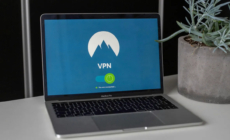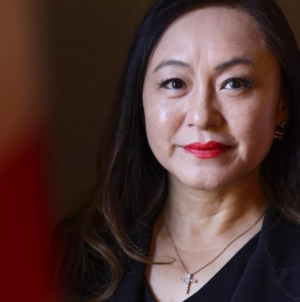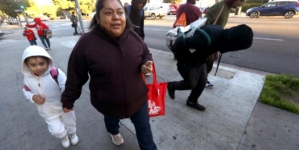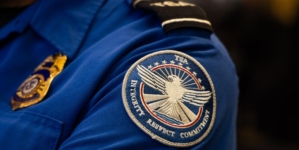-
Ukraine Drones Hit Russian Hideout in War’s First Unmanned Ground Attack - 33 mins ago
-
USMNT & USWNT: State of the Union Awards | SOTU - 35 mins ago
-
Do you need a VPN at home? Here are 10 reasons you do - 43 mins ago
-
Who’s the politician at the center of latest China influence scandal? - about 1 hour ago
-
Family Plans to Adopt One Golden Retriever, Then They Find His Sibling - about 1 hour ago
-
How impressive was Justin Herbert against the Broncos? | First Things First - about 1 hour ago
-
The fight to protect a reindeer species - 2 hours ago
-
Plans to transform an iconic San Francisco highway into a park ignite recall furor - 2 hours ago
-
Winter Storm Warning for One State Issued as Nine Inches of Snow Forecast - 2 hours ago
-
Do the Baltimore Ravens deserve to be 6.5-Point favorite over the Pittsburgh Steelers? | First Things First - 2 hours ago
California spending millions on release of sexually violent predators
Since 2003, the California Department of State Hospitals has paid a single vendor around $93 million to oversee the release of 56 sexually violent predators — an average cost of about $1.6 million per predator, according to a recent report from the California State Auditor.
Sexually violent predators are individuals who are convicted of violent sexual crimes and also have a significant mental health condition. When their prison terms ends, a judge can civilly commit them to a state hospital, release them unconditionally or direct them into the DSH’s conditional release program.
DSH contracts with a company called Liberty Healthcare to find housing placements, provide mental health treatment and supervise participants, among other services. The goal is to safely transition released predators into communities and prevent them from reoffending.
The audit found the program is effective at reducing reoffense rates, albeit at a very high price tag.
Of the 56 people who have participated in the program, only two have been reconvicted of criminal acts — one for possessing child pornography and the other for a violation of a reporting requirement for sex offenders.
This undated law enforcement booking file photo, released by the Los Angeles County Sheriff’s Department in 2014, shows Christopher Hubbart, who is known as the “pillowcase rapist.”
(Uncredited / Associated Press)
In comparison, of the 125 sexual predators that have been unconditionally released by judges since 2006, 24 have been convicted again on a total of 42 felonies, two of which were for sexually violent offenses and five of which were for offenses of a sexual nature.
The audit said a key reason the program helps lower reoffense rates is because participants are closely monitored and can be recommitted to state hospitals if deemed dangerous, which happened to 18 of the 56 participants.
The audit examined annual program costs from fiscal years 2003-04 through 2023-24 and found that costs jumped nearly 75% from fiscal years 2018-19 to 2022-23 — from $6.6 million to $11.5 million. This hike was attributed to rising costs of housing, an increased number of participants, the addition of private security and higher rates charged by Liberty Healthcare.
DSH has made four attempts to secure contract bids from vendors other than Liberty Healthcare, but has been unsuccessful.
The program’s high cost and the disturbing number of sexual predators released into residential communities has generated significant criticism from elected officials and impacted community members.
One of the program’s fiercest critics is California Senate Minority Leader Brian Jones (R-Santee), who called for the audit in 2023 and recently said the audit’s findings depict a “costly, wasteful and dangerous” program.
“Despite the high price tag, the audit reveals critical lapses in safety oversight and even reoffenses among released [sexually violent predators],” said Jones in a statement on the results. “The bottom line is that the safety of children, the elderly, and other vulnerable Californians has been given short-shrift by Liberty Healthcare and casual monitoring by [DSH].”
Jones said that released sexual predators should be housed on state property under constant supervision, instead of in regular apartments or homes, and that he looks forward to working with the Legislature next year to improve the program.
The conditional release program often receives major pushback when participants are being placed in communities.
Residents in the Antelope Valley, for example, were infuriated last month when they learned that the notorious “Pillowcase Rapist” was moving in under the conditional release program. The rapist, Christopher Hubbart, was conditionally released into Palmdale in 2014, only to be recommitted to the Coalinga State Hospital in 2017 following evidence that he’d violated the terms of his release.
Hubbart has spent much of the last 24 years in state hospitals after he admitted to 44 sexual assaults over an 18-year-period. He gained his nickname for covering his victims’ heads with pillowcases while raping them.
L.A. County Supervisor Kathryn Barger and L.A. County Dist. Atty. George Gascón both opposed Hubbart’s conditional release placement in the Antelope Valley, where two previously released sexual predators were placed in 2021.
Similar battles over the placement of sexual predators have played out in communities across the state including Poway, Rancho Bernardo and Placer County.
The audit identified securing housing placements as the program’s biggest challenge.
State law generally requires that released predators be placed within 30 days of their enrollment in the conditional release program. But, Liberty Healthcare took an average of 17 months to secure housing for current program participants, according to the audit. Two current participants waited over three years to have their placements approved.
The audit identified several challenges with securing placements. This includes the fact that most placements cannot be within one-quarter mile of any K-12 school or homeschooled student. In addition, many landlords are unwilling to rent to released predators and often face community harassment if they consider doing so, the audit states.
The audit recommended that DSH consider creating transitional housing facilities for released predators so they have somewhere to go while awaiting permanent placements. DSH, however, shot down the idea, arguing that state-owned traditional housing would increase program costs without addressing the underlying challenges of securing permanent placements.
Source link































